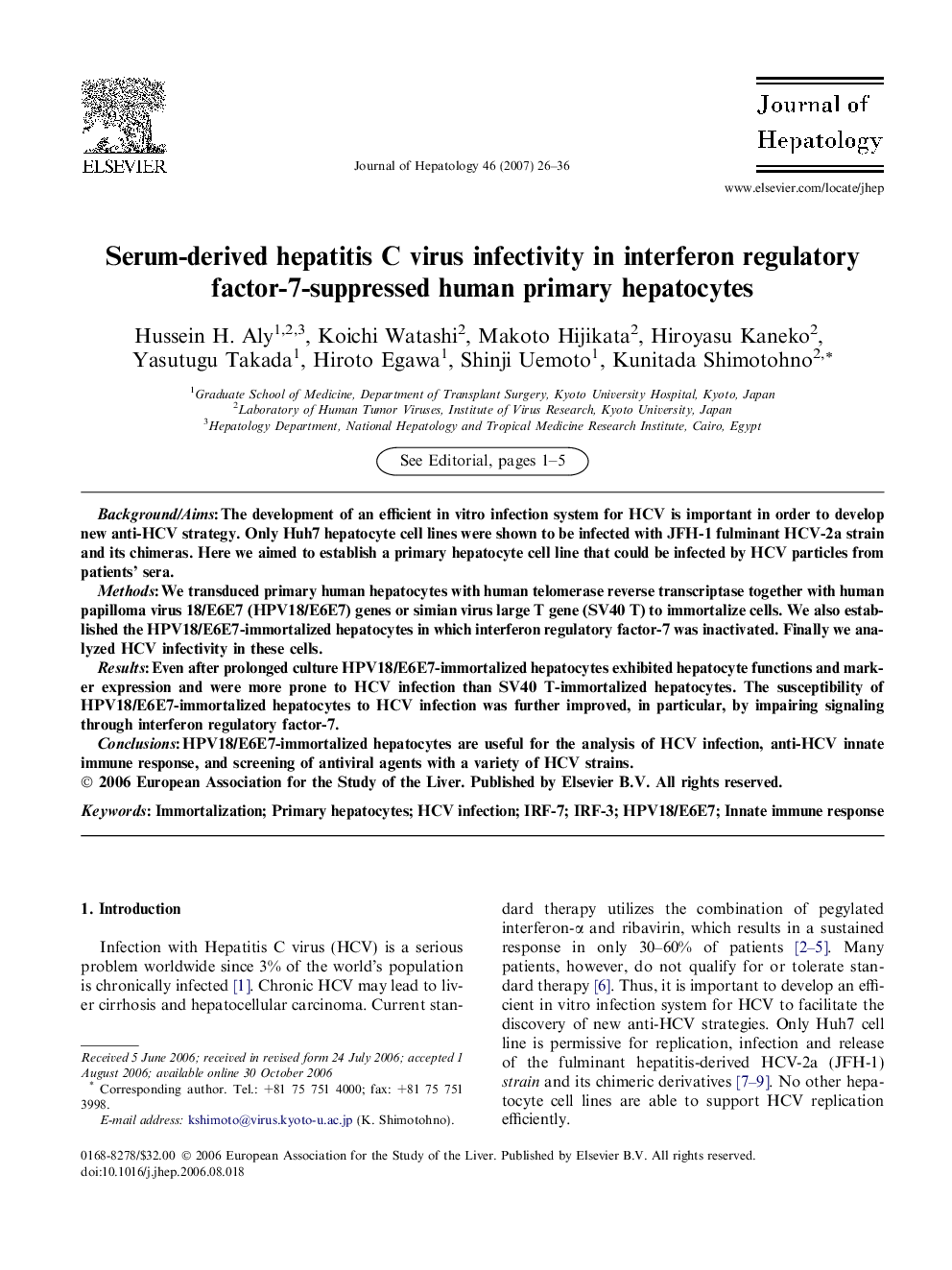| Article ID | Journal | Published Year | Pages | File Type |
|---|---|---|---|---|
| 3315033 | Journal of Hepatology | 2007 | 11 Pages |
Background/AimsThe development of an efficient in vitro infection system for HCV is important in order to develop new anti-HCV strategy. Only Huh7 hepatocyte cell lines were shown to be infected with JFH-1 fulminant HCV-2a strain and its chimeras. Here we aimed to establish a primary hepatocyte cell line that could be infected by HCV particles from patients’ sera.MethodsWe transduced primary human hepatocytes with human telomerase reverse transcriptase together with human papilloma virus 18/E6E7 (HPV18/E6E7) genes or simian virus large T gene (SV40 T) to immortalize cells. We also established the HPV18/E6E7-immortalized hepatocytes in which interferon regulatory factor-7 was inactivated. Finally we analyzed HCV infectivity in these cells.ResultsEven after prolonged culture HPV18/E6E7-immortalized hepatocytes exhibited hepatocyte functions and marker expression and were more prone to HCV infection than SV40 T-immortalized hepatocytes. The susceptibility of HPV18/E6E7-immortalized hepatocytes to HCV infection was further improved, in particular, by impairing signaling through interferon regulatory factor-7.ConclusionsHPV18/E6E7-immortalized hepatocytes are useful for the analysis of HCV infection, anti-HCV innate immune response, and screening of antiviral agents with a variety of HCV strains.
